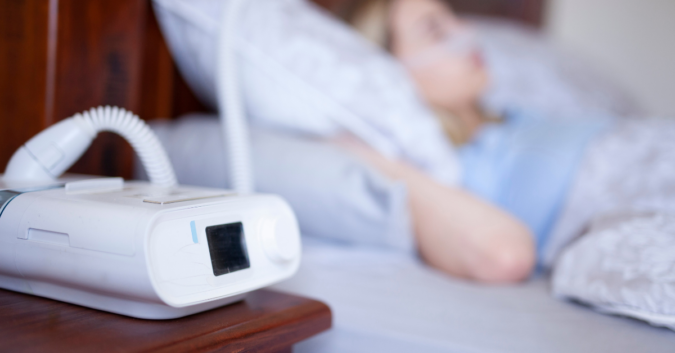More than 18 million Americans suffer from sleep apnea — a sleep disorder marked by obstructed breathing during sleep. Left untreated, sleep apnea can increase one’s risk of developing additional severe health conditions such as diabetes, stroke, and heart disease.
Many individuals living with sleep apnea rely on certain types of respiratory care devices to help them breathe better while sleeping. Known as CPAP and BiPAP machines, these devices can prove invaluable to those struggling to breathe normally during sleep.
But what happens when these devices turn out to be unreliable or, worse, potentially harmful or even carcinogenic?
Earlier this year, the U.S. Food and Drug Administration (FDA) announced a recall of 3-4 million ventilators, BiPAP, and CPAP devices manufactured by Philips Respironics, citing potentially severe health risks associated with the devices that could ultimately lead to cancer, organ damage, or even death.
FDA Recall of CPAP Devices Manufactured by Philips
In its recall notice, the FDA identified three different types of Philips respiratory care devices that posed risks to users, including:
- Bi-level Positive Airway Pressure (Bi-level PAP or BiPAP) Devices
- Continuous Positive Airway Pressure (CPAP) Machines
- Mechanical Ventilators
Of the recalled Philips devices, roughly 80% are CPAP machines, particularly those in the first generation of DreamStation machines (To learn more about specific models included in the recall, visit our full list here).
The major safety issue with Philips’s CPAP and BiPAP machines involves the sound-reducing foam contained within these devices. In its June alert, the FDA warned that this foam can break down over time and subsequently be inhaled by users of the devices, potentially exposing them to harmful chemicals.
According to complaints received by the FDA, the recalled Philips sleep apnea devices have been associated with serious, potentially life-threatening health complications, including:
- Cancer (particularly in the kidneys, liver, and lungs)
- Damage to or failure of the kidneys, liver, or lungs
In a November follow-up to its June alert, the FDA announced that it had conducted a safety inspection of the Philips manufacturing plant where the defective devices were made to learn more about the causes of the defective foam, as well as to ensure Philips is following FDA manufacturing regulations.
Additional Concerns Arise With Replacement Foam
In its November update, the FDA noted that the silicone-based foam Philips is now using as a replacement to their devices’ original foam has raised additional red flags. The agency identified a similar silicone-based foam marketed outside the U.S. that had previously failed a safety test after it, too, broke down over time, releasing “volatile organic compounds” (VOCs) that presented safety concerns to users.
As a result, the FDA has requested that Philips contact an independent laboratory to conduct additional testing to determine what potential safety risks may be posed to users by the replacement silicone-based foam.
FDA Requires Additional Testing of Silicone-Based Replacement Foam
While the agency awaits the independent test results on Philips’s replacement silicone-based foam, the FDA recommends that patients using the affected CPAP and BiPAP devices not stop using them, citing the overall risk-benefit assessment.
In a statement, Director of the FDA’s Center for Devices and Radiological Health Jeff Shuren, M.D., J.D., said:
“We recognize that patients rely on these devices, and we are closely monitoring the company’s actions to ensure that the issues are resolved in a timely manner given the impact on patients. We are committed to continuing to regularly update the public about the status of this recall, including any new recommendations or actions regarding Philips Respironics’ devices.”
As noted in its June announcement, the FDA recommends that individuals currently using a recalled Philips device that has not yet been repaired and replaced discuss their situation with their health care providers.
Get Help Filing a Philips CPAP Lawsuit
If you have used or currently use a Philips mechanical ventilator, BiPAP, or CPAP machine and have suffered serious injuries as a result, you may be eligible to file a Philips CPAP machine lawsuit for compensation from the product manufacturer.
An established national law firm, Sokolove Law has the resources and reach to fight on behalf of our injured clients and hold powerful companies accountable for their negligence. Over the last 40 years, Sokolove Law has recovered more than $1.5 Billion on behalf of clients affected by dangerous medical devices and drugs.
Get a free case review to learn more about your potential legal options with Sokolove Law.
